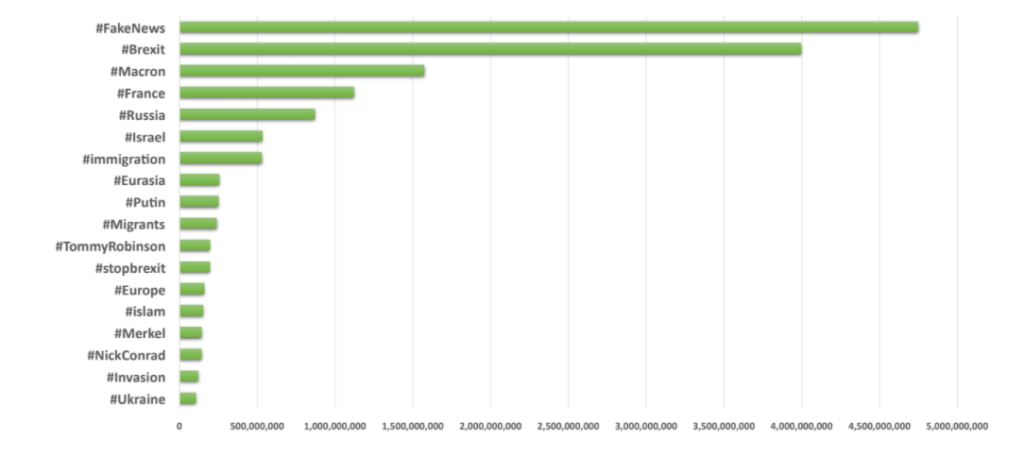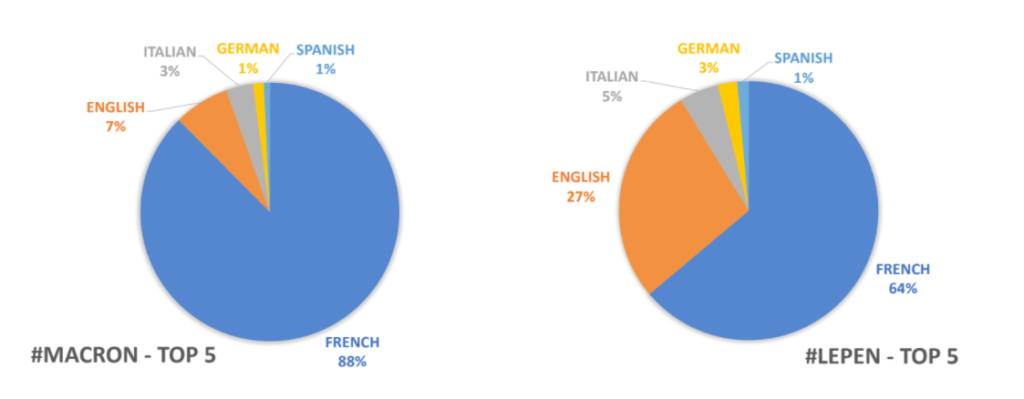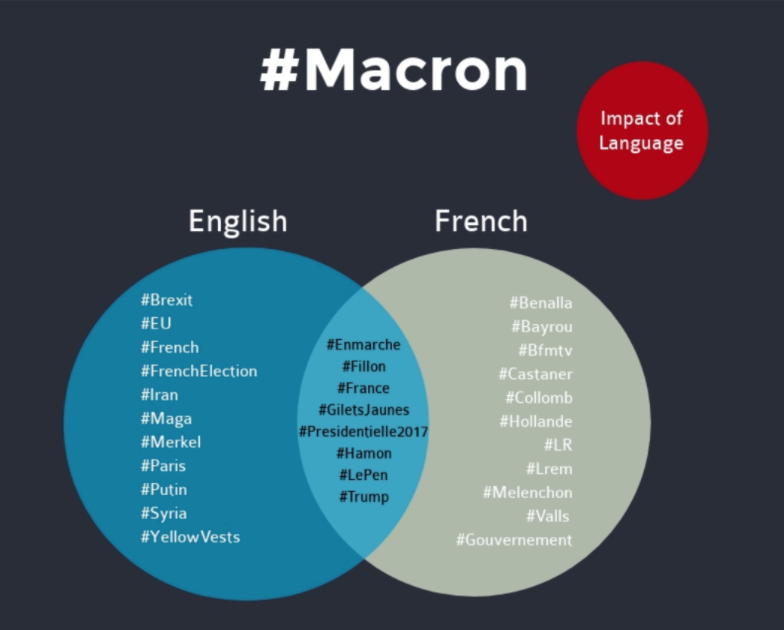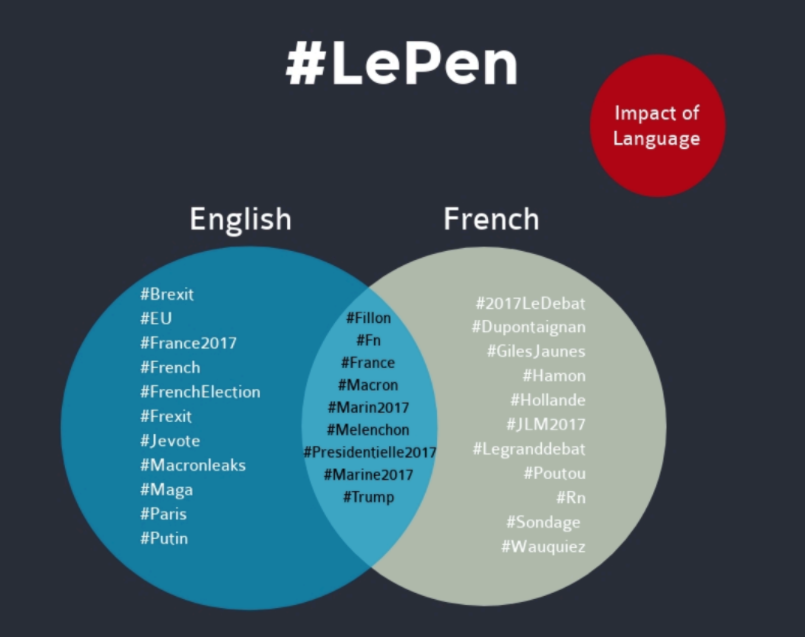Highest Volume Hashtags
Tweets & Retweets

#FakeNews in first place.
Of the hundreds of hashtags we have been tracking, in 2017 and 2018, #FakeNews topped the list. We should note that the term originated during the 2016 election in response to misinformation and disinformation circulating around Hillary Clinton. Soon after the election, however, President-elect Donald Trump began employing the term in Orwellian fashion: to refer to fact-based news that was critical of him as “fake news,” thus clouding and distorting the term’s original meaning. Trump’s goal in disparaging the newsmedia, which he himself described in an interview with 60 Minutes, was to discredit legitimate news sources (especially CNN, the New York Times and the Washington Post) so consumers of news would discount negative stories about him. Outside the United States, however, the term “fake news” in this time period was still being employed in a non-Orwellian way, in other words to describe misinformation and disinformation. “Fake news” has furthermore been adopted by French speakers and is a frequently occuring anglicism. This hashtag underscores the need for cultural and historical interpretation of the data we are able to pull from Twitter.
#Brexit.
Brexit in this period dominated French-language conversations on Twitter, outstripping even conversations involving #Macron. Brexit is followed by further hot-button issues from this time period. Brexit loomed large for the French economy, as well as political questions around the future stability of the European Union, which in this time frame was under significant pressure from euroskeptics across the continent.
#Russia and #Putin could easily be merged.
Viewed in that light, conversations around Vladimir Putin’s autocracy would eclipse #France.
Tweet Language

These images help us understand how conversations on Twitter around two major French political figures differ across languages. Most salient here is the fact that #LePen appears more frequently in conversations in English, German, and Italian than does #Macron. This is especially so in English. This suggests that Marine Le Pen—the leader of the notorious far-right Rassemblement National political party and self-styled oppositionist to President Emmanuel Macron—has been granted outsized importance on the global stage relative to her electoral potential in her home country. Indeed, it is possible that her notoriety and extremism garner her more attention outside France than is warranted.
Impact of Language


How does language affect topics of conversation or the ways in which discourse is shaped?
These images provide a partial answer, illustrating the impact of language on Twitter conversations and hashtag usage. These Venn diagrams show the top hashtags that co-occur alongside #Macron, #LePen, and #GiletsJaunes.
A few observations:
- The scandal around Alexandre Benalla had a strong and lasting impact on French-language conversations around Macron. It did not, however, appear in the top 19 co-occurring hashtags in English-language conversations.
- Macron’s top co-occurring hashtags in English tend to reflect his stature as a world leader. They furthermore reflect the global importance of American domestic politics as well as the high volume of conversations around Russia and Vladimir Putin.
- The Gilets Jaunes movement was a notable topic of French and English-language conversations in relation to both France and Macron.
- #LePen co-occurred in French with hashtags referencing marginal and extremist politicians (on both the left and the right). This includes Jean-Luc Mélenchon (leader of the far-left La France Insoumise) and Nicolas Dupont-Aignan, a sovereignist French politician and president of the party Debout la France. #Macron, on the other hand, tended to co-occur with more mainstream figures (former French president François Hollande and the centrist François Bayrou, for example)
- #Frexit, the short-lived French answer to Brexit, was not a prominent issue in French-language conversations but it was in English-language tweets about Marine Le Pen. This again suggests that the perception of French politics in the Anglophone world differs from that in the Francophone world.
- Regarding the Gilets Jaunes movement, given the overall tenor of discussions around the movement on Twitter that #Violencespolicières was the most frequently co-occurring hashtag in French-language tweets.